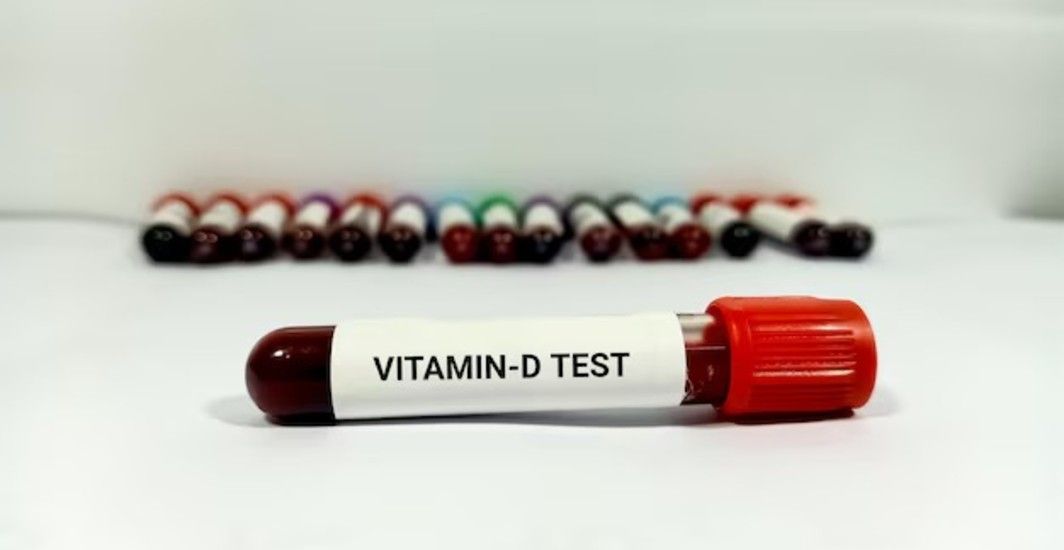General Health
Alanine Aminotransferase (ALT/SGPT), Serum Test - Normal Range, Purpose, Procedure And Results Interpretation
6 min read
By Apollo 24|7, Published on - 02 May 2025
Share this article
0
0 like
.jpg?tr=q-80)
The Alanine Aminotransferase (ALT/SGPT) test is a crucial diagnostic blood test that measures the levels of ALT enzyme in your bloodstream. ALT, also known as Serum Glutamic-Pyruvic Transaminase (SGPT), is primarily found in liver cells and plays a vital role in converting food into energy. When liver cells are damaged or inflamed, ALT leaks into the blood, making this test an essential tool for detecting liver abnormalities. In this comprehensive article, we'll explore everything you need to know about the ALT/SGPT test - including its purpose, SGPT normal ranges, testing procedure, interpretation of results, and what abnormal levels might indicate about your liver health.
What is Alanine Aminotransferase (ALT/SGPT)?
Alanine Aminotransferase (ALT or SGPT) is an enzyme present in high amounts in the liver. Smaller amounts are found in the heart, muscles, and kidneys. ALT helps metabolise amino acids and is essential for energy production in the body. In healthy individuals, ALT remains inside liver cells. When the liver is damaged by disease, injury, alcohol, or medication, ALT leaks into the blood.
- SGPT normal range male: 7 to 56 U/L
- SGPT normal range female: 7 to 45 U/L
Values outside the normal range may signal liver disease, making the SGPT test normal range a vital indicator of liver health.
Purpose of the ALT/ SGPT Test
The ALT/SGPT test is a crucial diagnostic tool used to evaluate liver health and detect potential liver damage. Below are the key purposes and reasons why this test may be recommended:
1. Diagnosis of Liver Diseases: Elevated ALT levels often indicate liver cell damage, helping diagnose conditions such as:
- High SGPT levels may indicate:
- Hepatitis (viral, autoimmune, or alcoholic)
- Fatty Liver Disease (Non-alcoholic fatty liver disease or alcoholic)
- Cirrhosis (scarring of the liver)
- Liver cancer or metastases
2. Monitoring Medication Side Effects: Drugs like statins, antibiotics, or paracetamol can damage the liver. Regular ALT testing helps track potential side effects.
3. Evaluating Alcohol-Related Liver Damage: Chronic alcohol use can elevate SGPT levels. Testing helps evaluate liver damage and recovery.
4. Assessing Metabolic Disorders: Obesity, diabetes, and metabolic syndrome are linked to fatty liver disease. ALT helps monitor liver status in these patients.
5. Monitoring Viral Hepatitis Treatment: For chronic Hepatitis B or C, ALT levels help assess:
Disease progression
Response to treatment
Risk of liver failure
6. Routine Health Check-Ups: Often part of an annual liver function test for people with:
- A family history of liver disease
- Risk factors like obesity or diabetes
- Pre-surgical assessments
7. Identifying Muscle or Heart Conditions: Slightly elevated ALT can occur in:
- Muscle injury (rhabdomyolysis)
- Heart issues (though AST is more heart-specific)
8. Screening for Silent Liver Disease: Many liver conditions show no early symptoms. SGPT testing helps detect damage before symptoms appear.
How to Prepare for an ALT/ SGPT Test?
Preparing for an ALT (SGPT) blood test is simple, but following the right steps ensures accurate results. Here’s a clear guide to help you get ready:
1. Talk to Your Healthcare Provider: Tell your doctor about all medications, vitamins, and supplements you take. Intense exercise or certain drugs may affect your SGPT level.
2. Fasting Requirements: Fasting is usually not required unless other tests are also ordered. Confirm with your doctor.
3. Best Time for the Test: While the test can be done at any time, afternoon testing may be preferable because ALT levels naturally peak in the afternoon due to circadian rhythms.
4. Avoid Alcohol and Certain Medications (If Advised): Alcohol can increase ALT levels. Some medications like statins, pain relievers, or antibiotics may affect results.
5. Stay Hydrated: Drinking water before the test helps with easier blood draw and prevents dehydration, which could slightly impact results.
6. Limit Strenuous Exercise: Avoid heavy workouts for 24-48 hours before the test, as intense exercise can temporarily raise ALT levels.
7. Dress Comfortably: Wear short sleeves or loose clothing to make blood sample collection easier.
Procedure for the ALT/ SGPT Test
The SGPT test is a simple and quick procedure that helps assess your liver health. Here’s a step-by-step breakdown of how the test is performed:
1. Blood Sample Collection
- A technician cleans the area with antiseptic.
- A tourniquet or band is tied around your arm.
- Blood is drawn using a small needle - it may feel like a quick pinch.
- A bandage or cotton is applied afterwards.
2. Post-Test Instructions
- Slight bruising is normal and fades quickly.
- You can resume regular activities immediately.
5. Receiving Your Results
- Results are typically available within 6-24 hours, depending on the lab.
- Your doctor will review the findings and discuss them with you, explaining any necessary next steps.
6. Important Tips:
- Follow your doctor’s specific instructions, especially if other tests are being done.
- No special diet is needed, but avoid alcohol and heavy exercise before the test.
- Results interpretation should always be done by a doctor, as SGPT normal range can vary based on age, gender, and health conditions.
ALT/ SGPT Test: Results Interpretation
The test results are given in units per litre (U/L). The SGPT normal range can vary slightly depending on the lab that analysed the blood sample and the technique used.
Alanine Aminotransferase (ALT/SGPT)
Note: An SGPT ALT test report alone cannot diagnose a condition; it's usually part of a more comprehensive investigation. Always consult with your doctor to understand your reports better and get appropriate care.
Managing Abnormal SGPT Test Results
Abnormal SGPT test results require a personalised approach based on whether the levels are high or low:
1. For High SGPT Levels (Liver Stress/Damage)
A. Identifying & Treating the Cause:
- Hepatitis: Antiviral medications like entecavir or sofosbuvir
- Alcoholic Liver Disease: Stop drinking, take B vitamins (B1, folate)
- Fatty Liver Disease (NAFLD): Weight loss, control diabetes, and consider vitamin E
- Drug-Induced Injury: Stop or replace harmful medications
B. Medications to Support Liver Function:
- Ursodeoxycholic acid (UDCA) or obeticholic acid for primary biliary cholangitis.
- Silymarin (milk thistle extract) may be used as a complementary therapy for some patients.
C. Lifestyle & Dietary Adjustments:
- Reduce sugar, refined carbs, and processed foods to combat fatty liver.
- Increase fibre, antioxidants (berries, greens), and lean proteins.
- Avoid alcohol and hepatotoxic substances (e.g., excessive acetaminophen, herbal supplements like kava).
- Exercise regularly (150 mins/week of moderate activity) to improve insulin sensitivity.
D. Monitoring & Follow-Up:
- Repeat SGPT tests every 3-6 months to track progress.
- Liver ultrasound or FibroScan if chronic damage is suspected.
2. For Low SGPT Levels (Rare but Possible)
A. Investigating Underlying Causes:
- Vitamin B6 deficiency: Supplementation if levels are low.
- Chronic kidney disease (CKD): Requires kidney function evaluation and management.
- Genetic or metabolic disorders: Further testing if other symptoms are present.
B. Nutritional Support:
- Balanced diet with adequate protein (to support enzyme production).
- B-vitamin complex supplementation if deficient.
- C. Medical Evaluation for Systemic Conditions: Rule out malnutrition, celiac disease, or hormonal imbalances (e.g., hypothyroidism).
Conclusion
The ALT/SGPT test is a vital diagnostic tool for evaluating liver health. By measuring ALT enzyme levels, it helps detect potential liver damage early. If your results fall outside the SGPT normal range, consult your doctor to identify the cause. Elevated levels may indicate hepatitis, fatty liver disease, or side effects of medication—often manageable through diet, lifestyle changes, or treatment. Regular SGPT monitoring allows early intervention and helps track improvements. Understanding your results and maintaining healthy habits ensures long-term liver health and overall well-being.
General Health
Leave Comment
Recommended for you

General Health
Vitamin D Test: Purpose, Procedure, Range and Results
Discover the purpose, procedure, normal range, and results of a Vitamin D test. Understand how Vitamin D levels impact your health and when to get tested.
.jpg?tr=q-80)
General Health
Heart Rate - Normal Range, Purpose, Procedure And Results Interpretation
Learn about Heart Rate monitoring, including the normal range, its purpose, how it's measured, and how to interpret results for insights into cardiovascular health.

General Health
For How Long Does Radiation Stay In Your Body After A CT Scan?
Computed tomography (CT) scans use radiation to create 3D images of your internal organs to aid diagnosis. While low radiation doses in tests slightly raise cancer risk, the risks from CT scans are controlled and usually outweighed by benefits. Read on to learn all you need to know about radiation exposure due to CT scans.
Subscribe
Sign up for our free Health Library Daily Newsletter
Get doctor-approved health tips, news, and more.
Visual Stories

The Best Exercises for Controlling Blood Sugar Levels
Tap to continue exploring
Recommended for you

General Health
Vitamin D Test: Purpose, Procedure, Range and Results
Discover the purpose, procedure, normal range, and results of a Vitamin D test. Understand how Vitamin D levels impact your health and when to get tested.
.jpg?tr=q-80)
General Health
Heart Rate - Normal Range, Purpose, Procedure And Results Interpretation
Learn about Heart Rate monitoring, including the normal range, its purpose, how it's measured, and how to interpret results for insights into cardiovascular health.

General Health
For How Long Does Radiation Stay In Your Body After A CT Scan?
Computed tomography (CT) scans use radiation to create 3D images of your internal organs to aid diagnosis. While low radiation doses in tests slightly raise cancer risk, the risks from CT scans are controlled and usually outweighed by benefits. Read on to learn all you need to know about radiation exposure due to CT scans.